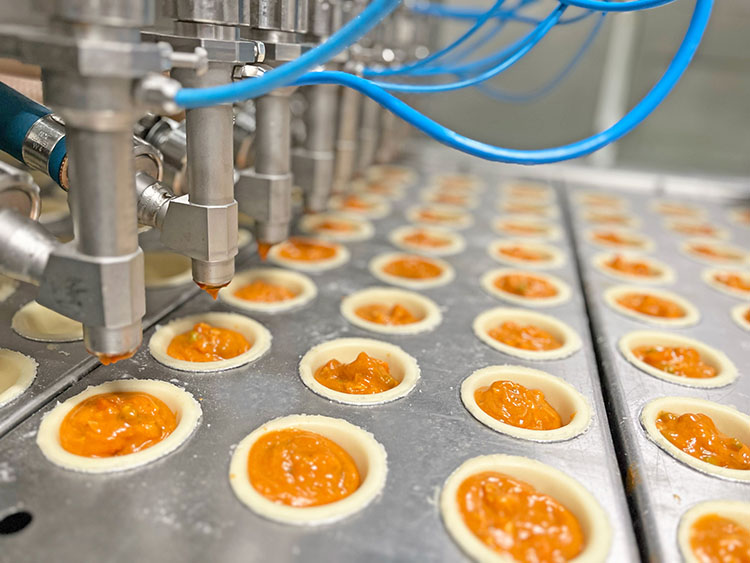
Every season sparks pie joy
Whether the pies have an open top – covered with various ingredients, or are closed with dough, lattice, or crumble, the technology needs to produce excellent results no matter the recipe and material changes.
Whether the pies have an open top – covered with various ingredients, or are closed with dough, lattice, or crumble, the technology needs to produce excellent results no matter the recipe and material changes.
Chip Czulada embarked on a new role as the President of Reading Bakery Systems (RBS) at the beginning of 2024. He shares with Baking+Biscuit International magazine his view on the first six months at the helm of the company where he has been working for over 20 years.
Fully automating kneading and mixing is an ambitious endeavor, given the complexity of the process, and the diversity of raw ingredients.
Technology innovation not only ensures the right temperature, airflow and humidity settings, but also addresses a priceless ingredient in baking: time. Reading Bakery Systems (RBS) recently launched a new multi-pass proofer, which was designed to do both. It is designed to be flexible in function, footprint, and form.
Over the years, advances in continuous mixing have been developed to improve ingredient metering, process controls and include specialized mixer designs and ultra-high capacity mixers. Compared to batch mixing, such technological developments make continuous mixing a better option than batch mixing, especially so for high-volume production.
Continuous dough production is designed with volume and efficiency in mind. Requirements stemming from the product characteristics, the manufacturing needs,
Reading Bakery Systems, a member of the Markel Food Group, has re-engineered the MX Continuous Mixer. The model now ranks as the most versatile continuous mixer, and is suitable for a broad product spectrum and a wide diversity of doughs.

